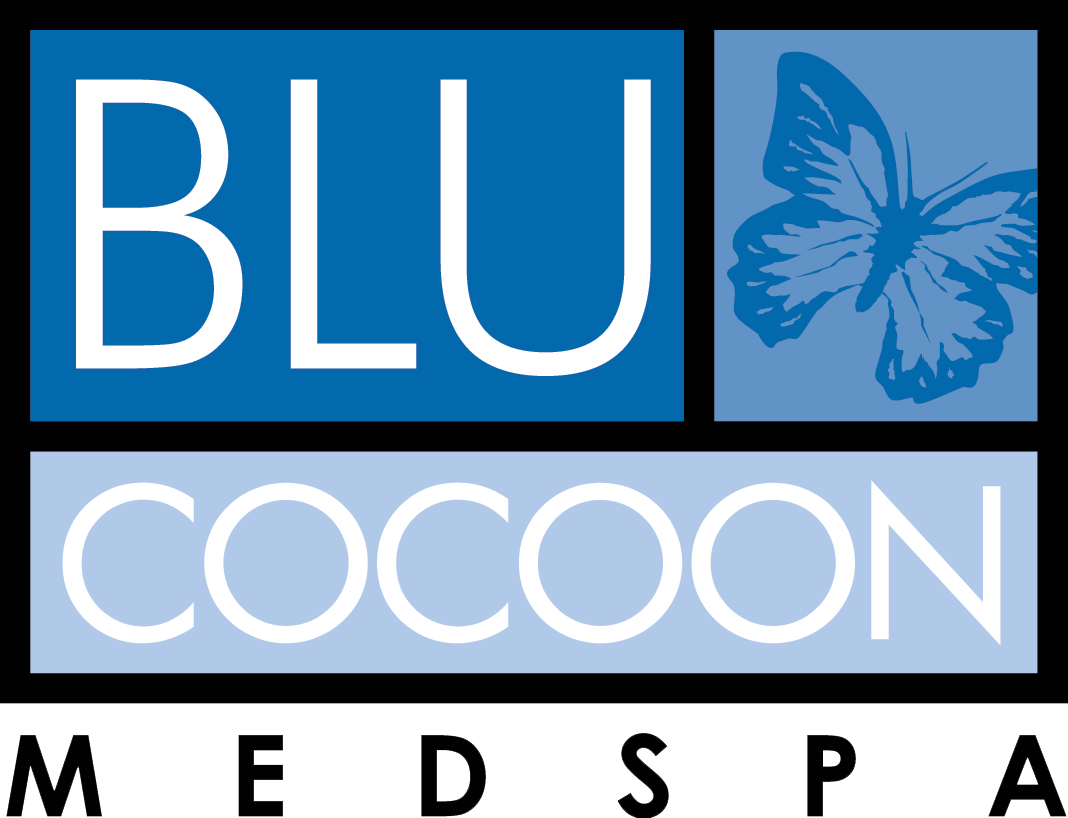Do you look in the mirror and see freckles, dark spots, “coffee” spots or uneven pigmentation on your face that seems to have developed overnight? It can be shocking but, rest assured, there are ways we can help!
When you come in to see us at Blu Cocoon MedSpa, the first thing we figure out is what type of hyperpigmentation you have. Once we know why the pigmentation is occurring, we can come up with a treatment plan that will get you on the path to clear and even skin. Since all skin is different, and there may be concurrent issues (such as acne), the treatment plan may vary from person to person.
Let’s talk about the four types of hyperpigmentation, the causes and what (in general) can be used or done to help stop it and even reverse the damage.
FRECKLES
Freckles appear as light to dark brown (sometimes red or black) spots on the skin, usually in concentrated small spots. We mostly see them on the face, chest, and arms – areas that are repeatedly exposed to UV rays from the sun. Fair skinned people are more likely to develop freckles, and are made worse by sun exposure.
Treatment for Freckles:
Freckles can be lightened effectively with FotoFacials. FotoFacials use Intense Pulsed Light (IPL) energy to gradually lessen or lighten freckles. A series of treatments yields the optimum result.
POST-INFLAMMATORY HYPERPIGMENTATION (PIH)
Post-inflammatory hyperpigmentation normally occurs on the face after acne has occurred because it is the skin’s natural response to an inflammatory “wound”. The pigmentation could be red, pink, or brown and can vary in size and shape. It is usually flat (not raised).
Treatment for PIH:
Since PIH is not a true scar it may fade over time on its own. However, it may only partially fade or take years to completely disappear. Salicylic or Glycolic Facial Mask Peels can help lighten the pigmentation through exfoliation and will also help with an acne issue. A facial peel will also promote a smoother skin texture. Multiple peels – done in a series over 6 weeks – may have the quickest effect to fading acne pigmentation. Tretinoin cream (popularly known as Retin-A) is also effective in fading hyperpigmentation from acne by speeding up the cell turnover rate. A lightening cream, such as hydroquinone or Lytera, can also help with the discoloration.
SUNSPOTS
Popularly known as “Liver” Spots or “Age” Spots, these appear on the face, chest, and hands and range in color from light to dark brown. The spots are not raised, they are flat. Sunspots are caused by sun exposure.
Treatment for Sunspots:
FotoFacials (as mentioned above) or Laser Facials may be an effective way to treat sunspots. A Laser Facial stimulates your skin’s collagen growth which helps to even out your complexion and reduces sun damage, scars, and large pores. An effective at-home treatment for sunspots would be to use a Tretinoin or Retinol cream such as SkinMedica‘s Retinol Complex. At Blu Cocoon, we have also seen tremendous improvement to sun damaged skin using SkinMedica’s Lytera Skin Brightening Complex. Lytera works on improving skin tone and texture, reducing discoloration, and improving overall skin condition.
MELASMA
Melasma usually appears on the sides of the face, upper part of the nose, forehead and/or above the lip in splotchy patches that are inconsistent in size and shape. Melasma is caused by a surge in hormones and it often occurs in people due to pregnancy or the use of birth control with sun exposure.
Treatment for Melasma:
Melasma can be difficult to treat because it has a potential to recur. Tretinoin creams, SkinMedica’s Lytera Skin Brighening Complex, and/or hydroquinone creams, as well as salicylic or glycolic facial peels may help because they lighten, exfoliate and encourage speedy cell turnover. Laser Facials can help reduce the appearance of melisma. Occasionally, Fotofacial treatments using Intensed Pulse Light (IPL) can also help, but caution should be used because if the skin is not prepped with a pigment suppressant, such as hydroquinone, it can actually stimulate the pigment to turn darker.
Have you noticed that sun exposure plays a part in each type of pigmentation discussed above? We can help you fade unwanted hyperpigmentation but if you do not protect your skin from the sun, the spots will reappear. We recommend daily use of an SPF of 30+, used year round. Don’t forget to reapply after exercise, excessive sweating, or simply a long day outside.
Make your hyperpigmentation a thing of the past. Our clinicians will evaluate your skin and get you on the road to a healthy, glowing, even complexion. Request an appointment online or call 408-295-2580.
